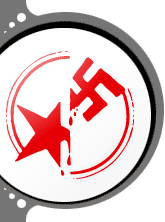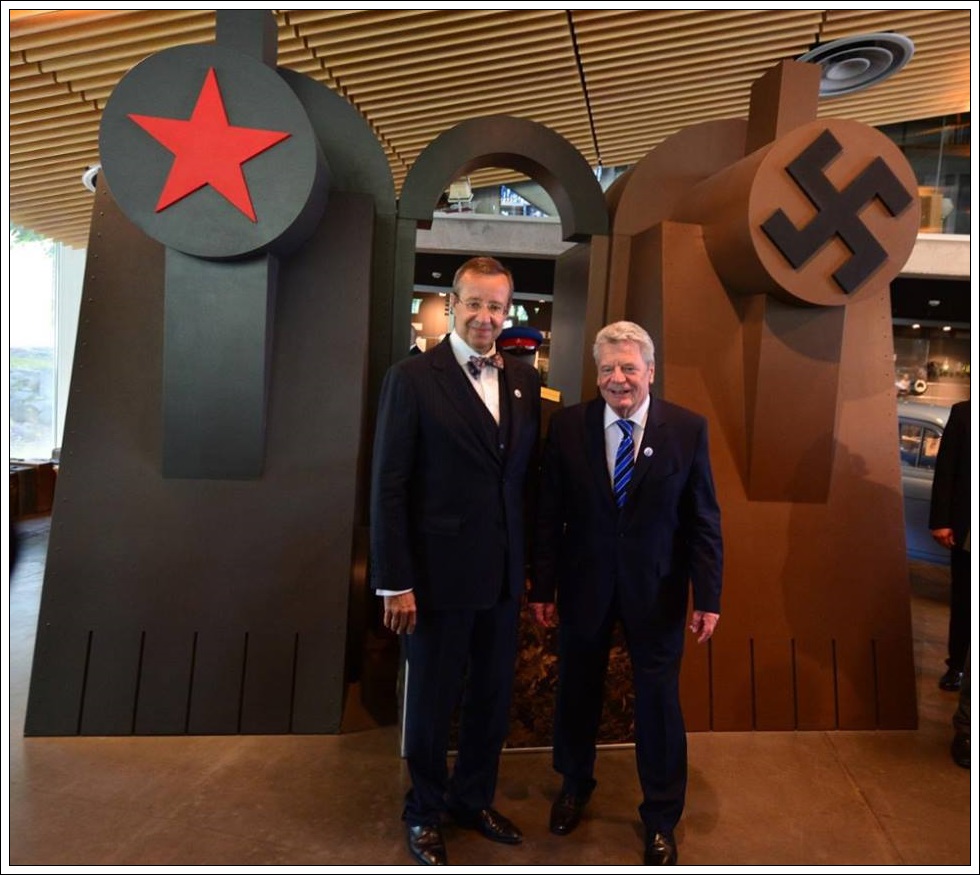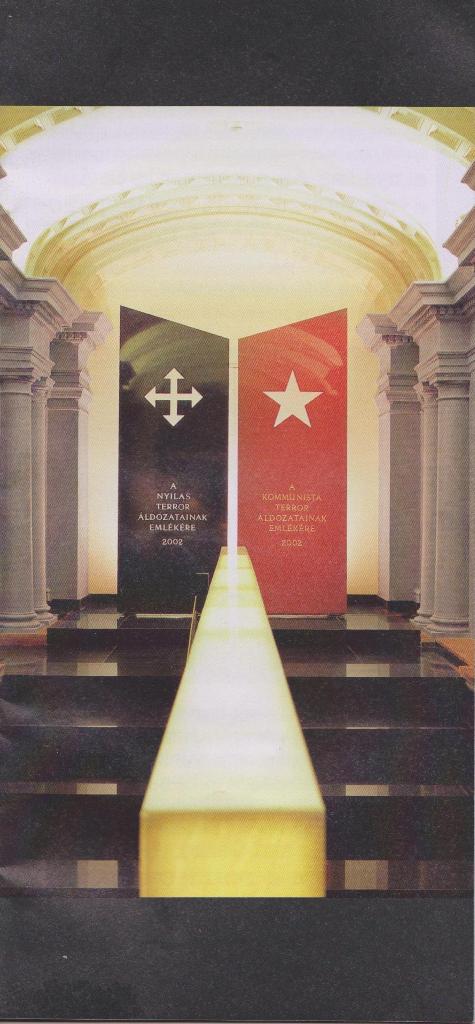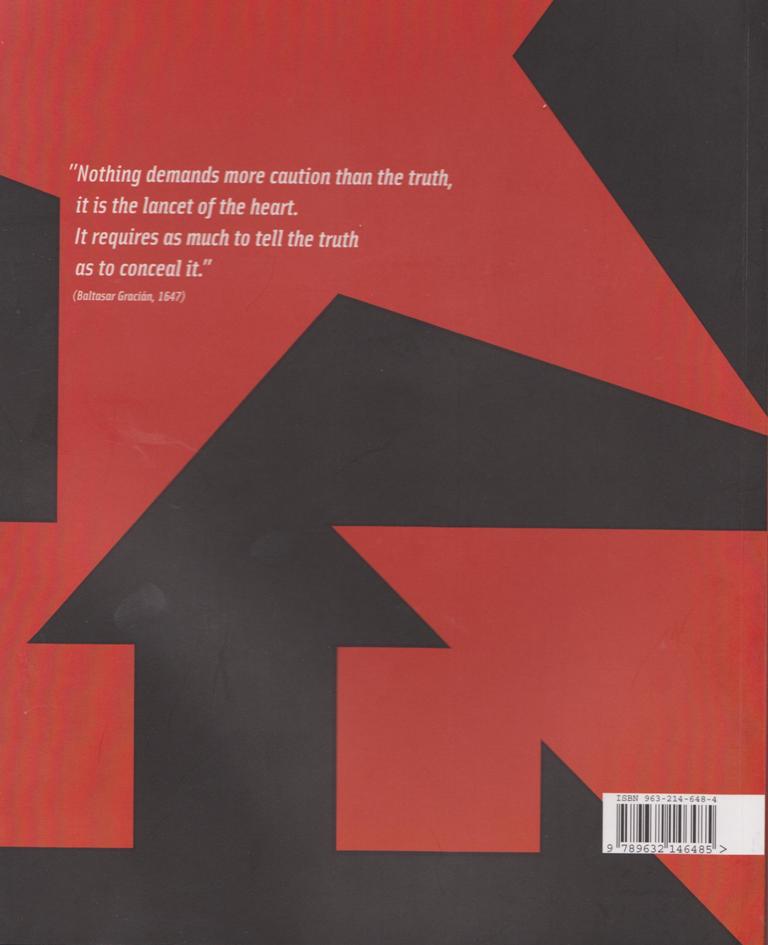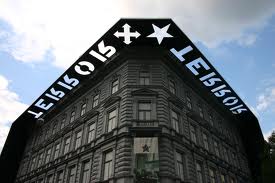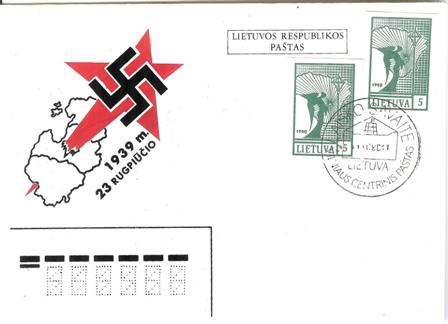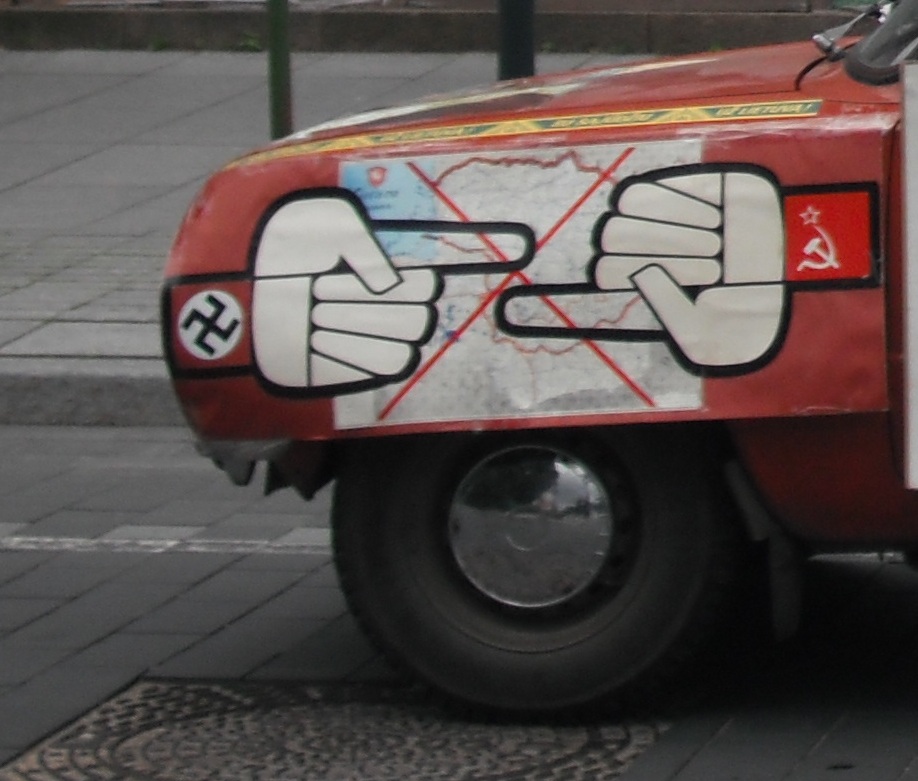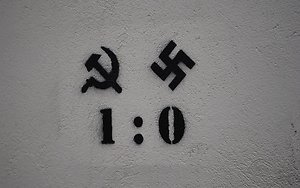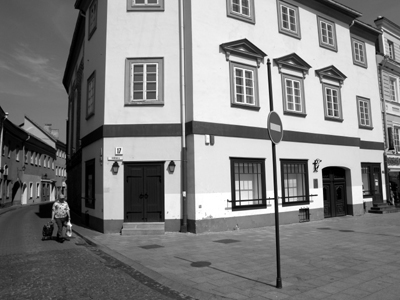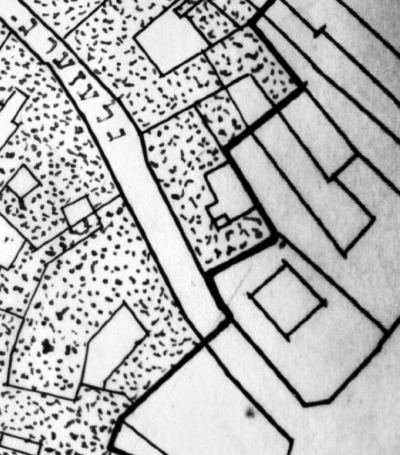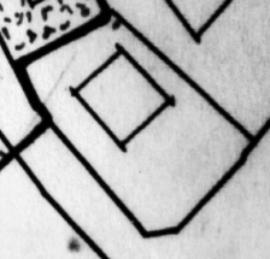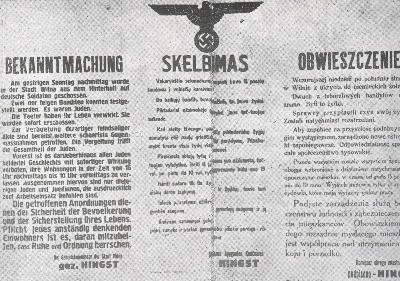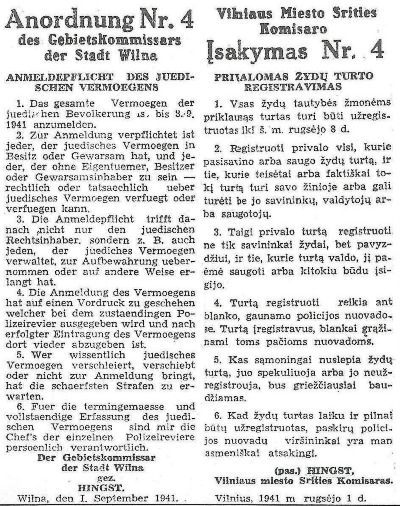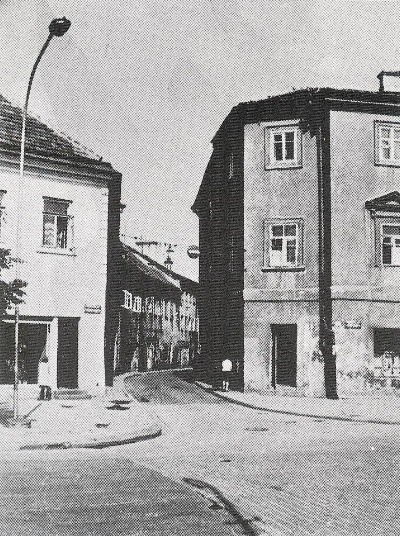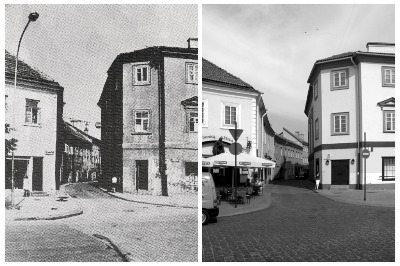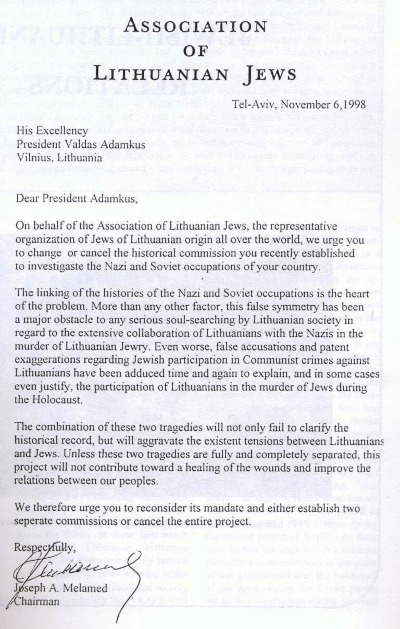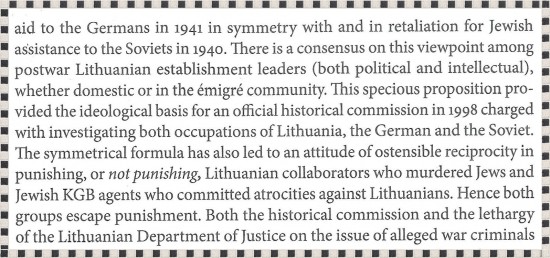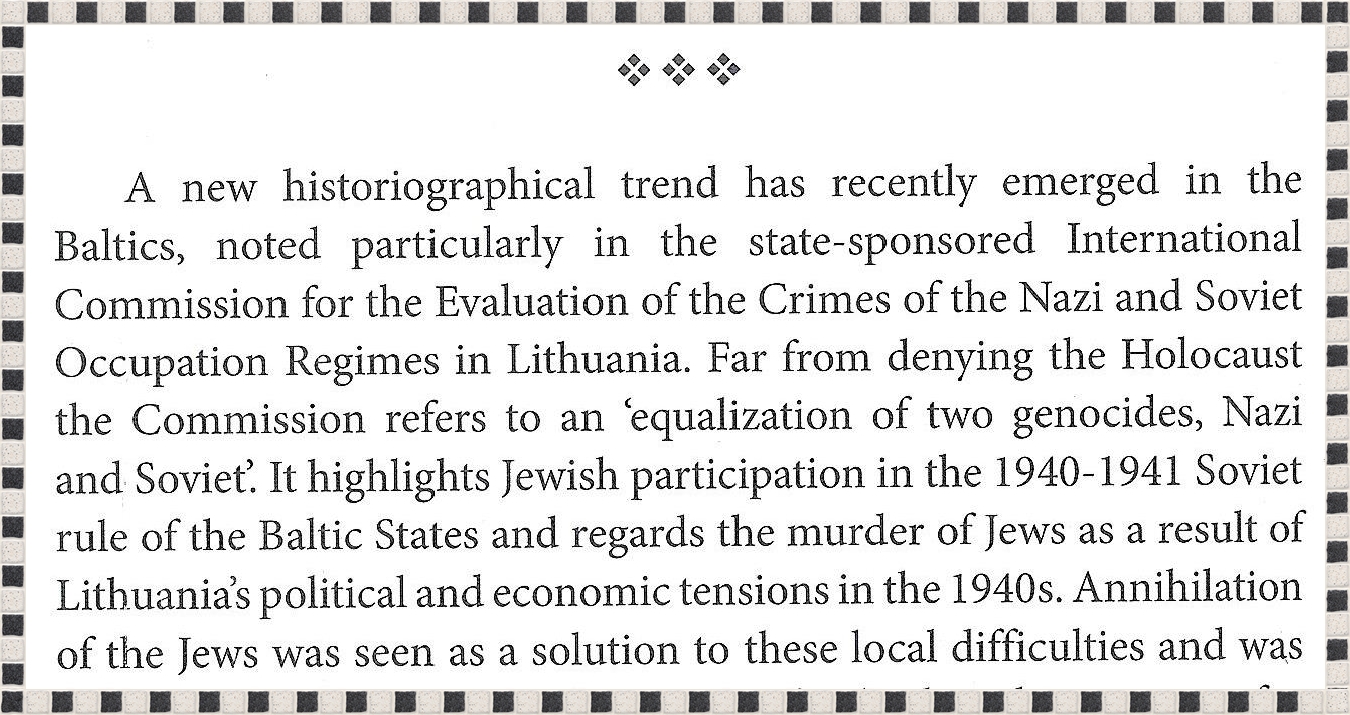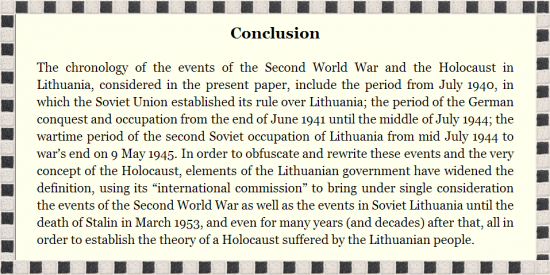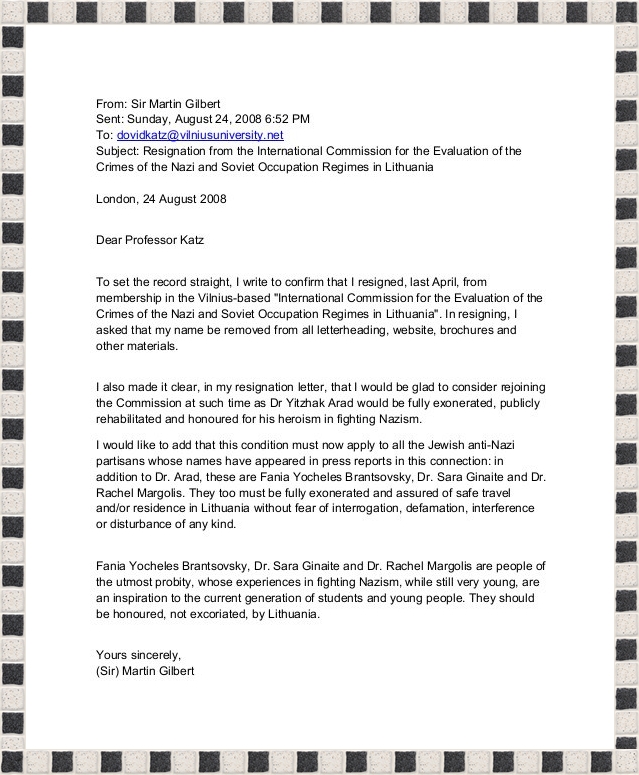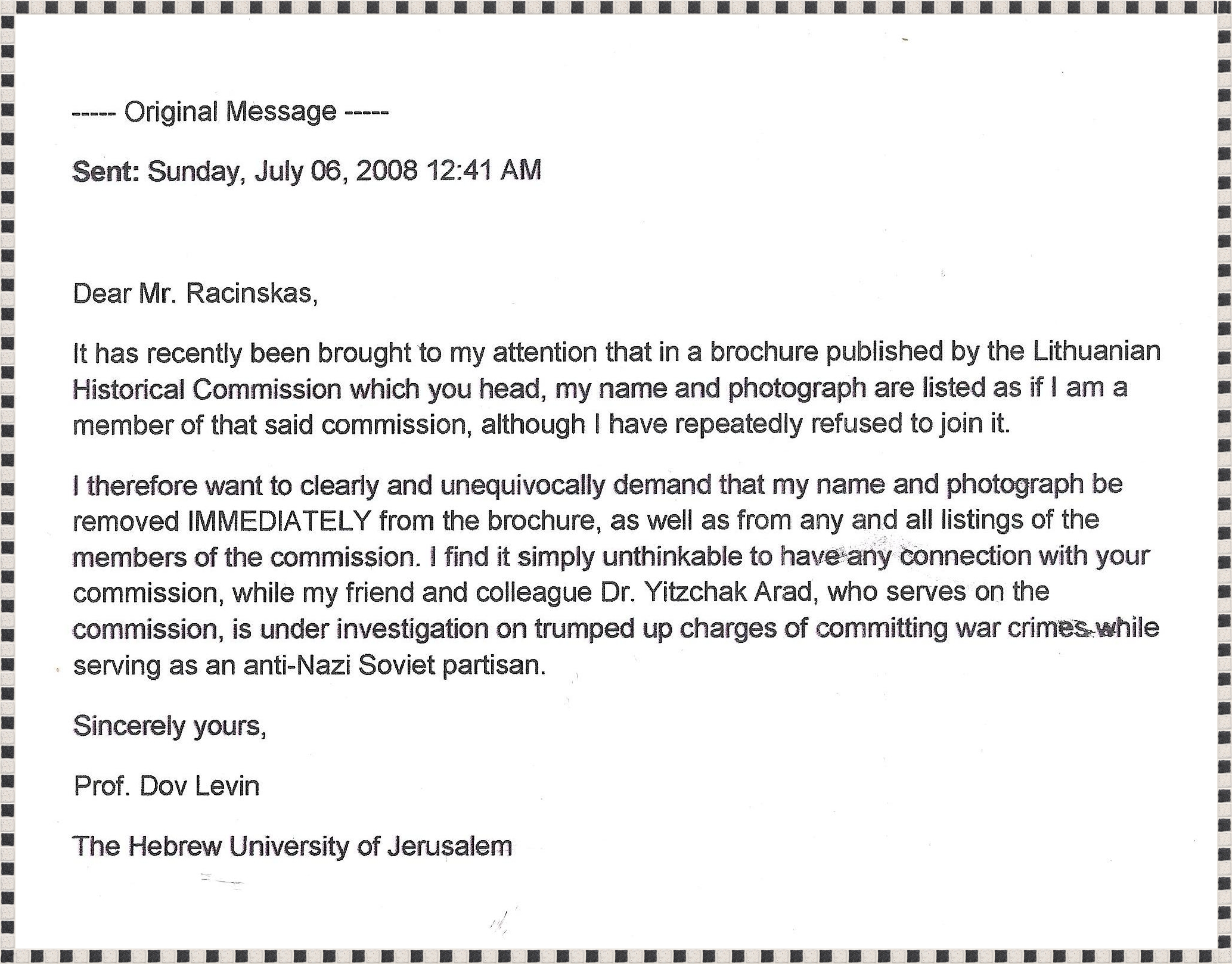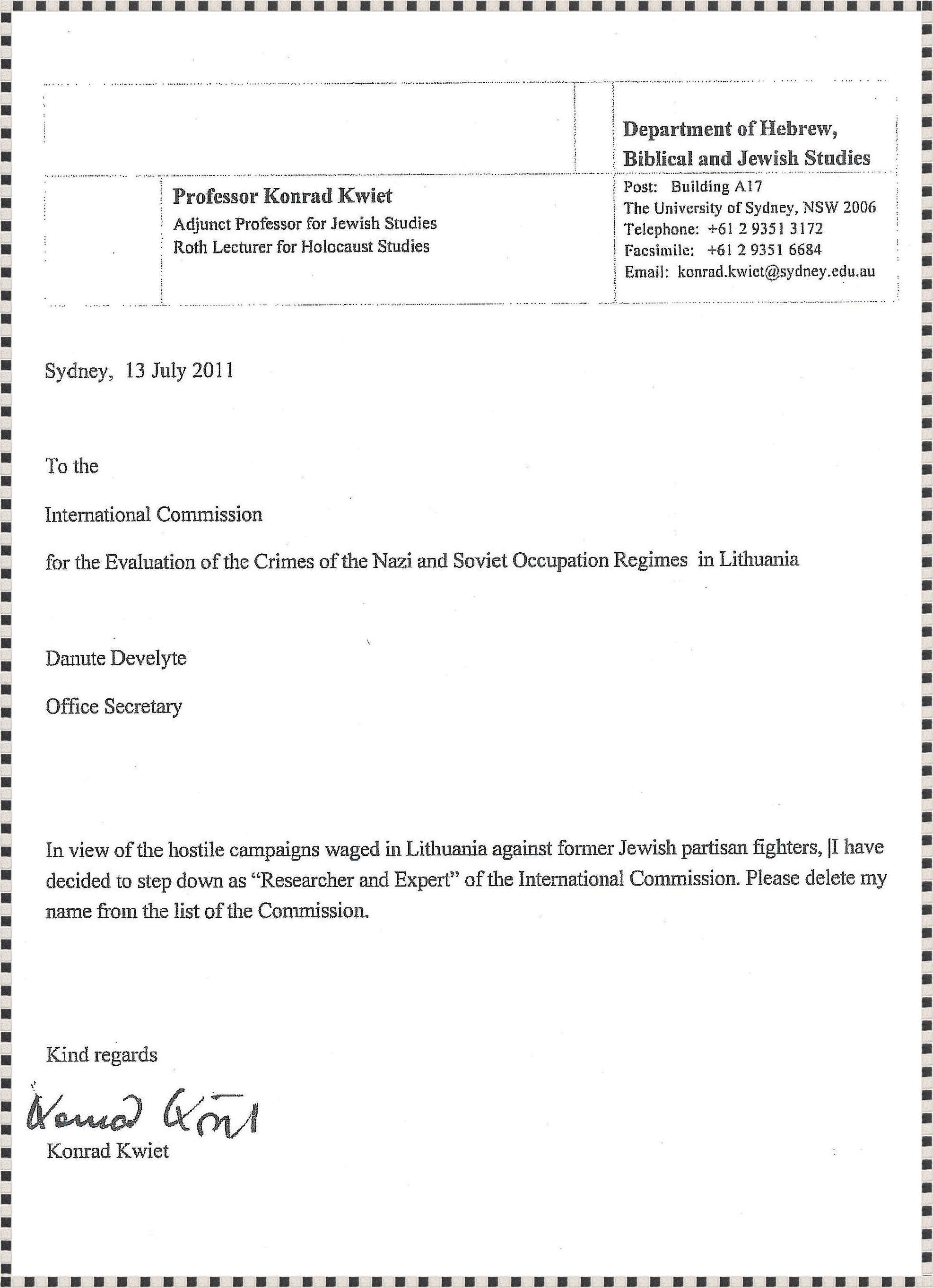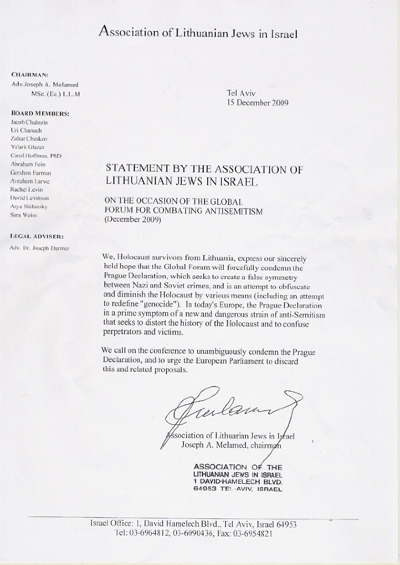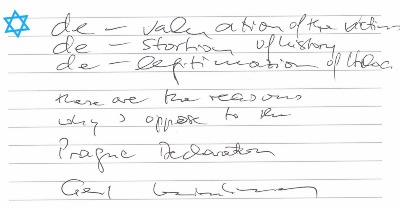Primary Concept:
Holocaust Obfuscation
Antisemitism Conferences or Studies = Obfuspeak for events and publications that are guaranteed to exclude any mention of contemporary local antisemitism at the point of production, but will feature excellent glossy brochures on the past and on intolerance in faraway lands
Blaming the Victims
Blizzard = Obfuspeak for when Estonia opts out of Obfuscationist documents and inches away from the expected Baltic positions
(It’s) Complicated = Obfuspeak for intentional confounding of the distinction between perpetrator and victim, and for efforts to confuse and confound issues
Control of Academia
Criminalization of Debate
Disneyland Ghetto Theme Park
Debate Rigging
Democracy Demolition
Dirty Tricks Department (+)
Double Genocide
Double-Genocider = (usually state-paid or favored) disseminator of Double Genocide revisionism, often camouflaged by ‘Jewish’ and ‘Yiddish’ events and by Holocaust Studies per se
Double Genocide Industry → Genocide Industry
Dry-Clean
Dual Citizenzhip = Obfuspeak for the notion that massive numbers of foreign Jews of Litvak origin are clamoring for Lithuanian citizenship only in order to stake claims for property or compensation and without any wish to invest in the country
Empty Jewish Addresses = addresses in Vilnius dedicated to the Jewish heritage but lacking in any genuine Jewish people, culture or knowledge
Equal Evaluation of Totalitarian Regimes = Obfuspeak for → Holocaust Obfuscation / Double Genocide
Erasmus Exchange Genocide Project
Ethnic and national symbols = Obfuspeak for: swastikas
Event Rigging
Fake Litvak
Fragments / Fragmentai = government project to restore ‘fragments’ of the Jewish quarter (/Vilna Ghetto) area, possibly with diverted Restitution funds, for PR and tourism, in the absence of clear support either from the Jewish community or from the current residents of the area.
Freedom of the Press = Obfuspeak for license for the mass media’s extreme antisemitic and homophobic incitement
Genocide = Obfuspeak for all crimes by states, which are inherently and necessarily equal (slogan: ‘Killing is killing’)
Genocide Advisor to the Prime Minister = formal Jewish advisor who will go along with Holocaust Obfuscation and Double Genocide while providing ‘Jewish cover’
Genocide Center = Obfuspeak for → a center interested in all except the one genocide that occurred in the country where it is located
Genocide and Resistance Research Center of Lithuania = Obfuspeak for the Research Center for Holocaust Obfuscation and Double Genocide, the most prestigious institution in town, providing ambitious academics with excellent prospects for income, publications and rapid elevation to the higher realms of politics and frequent foreign travel. When pressed by the public to nevertheless account for the murder of 200,000 Jewish citizens, the Center is quick to explain the situation. → Genocide Center
Genocide Industry = the collective institutional, financial, political, academic and media power of the Genocide Center, the Genocide Museum, the Red-Brown Commission, various history departments, faculties and institutes, and politicians and state agencies concerned with promoting Double Genocide and Holocaust revisionism
Genocide Museum = Obfuspeak for a museum interested in all but the one genocide that occurred in the country where it is located
Glorification of Holocaust Perpetrators
Government Litvaks
Graywash
Green House = Holocaust museum that provides an accurate history, and is invisible from any street
History Apartheid
Holocaust Memorial Year 2011 = Obfuspeak for a year of commemoration for the Holocaust that is simultaneously a year of commemoration for the perpetrators who launched the Lithuanian Holocaust in 1941, including a documentary film on the LAF
Holocaust Obfuscation
Holocaust Remembrance Day = September 23rd in Lithuania, marking the Germans’ liquidation of the Vilna Ghetto in 1943; rather than the international day, January 27th, marking the day Auschwitz was liberated by the Soviet army, or a day recommended by Lithuanian Holocaust Survivors, e.g. October 29th, date of the largest one-day massacre in Baltic history, when the Great Action was carried out at Kaunas’s Ninth Fort in 1941; or August 28th, marking the week in 1941 when seven entire age-old Jewish communities were totally annihilated, in both cases with massive voluntary local participation.
Human Rights = Obfuspeak for antisemitic tirades, particularly against Holocaust survivors, by major local ‘Human Rights’ organizations
Hypnotize = Obfuspeak for total psychological control of a → UJI
Identity Theft
International Commission for the Evaluation of the Crimes of the Nazi and Soviet Occupation Regimes = Obfuspeak for Red-Equals-Brown Commission → Holocaust Obfuscation / Double Genocide
June 23rd → June Uprising
June Uprising = Obfuspeak for the onset of the Lithuanian Holocaust on 22-23 June 1941 at the hands of ‘local rebels’ who began the campaign of barbarity and murder against innocent Jewish neighbors that continued uninterrupted until the achievement of the annihilation of Lithuanian Jewry. [Historical note: the Soviet army was fleeing the Nazi invasion, not the Lithuanian Activist Front (L.A.F.) ‘rebels’ who were busy initiating the Holocaust, and whose earlier leaflets set out exactly what they had in mind for the Jewish citizens of their country.]
Left = Obfuspeak for anyone not of the New Far Right
Lenin Theme Park = Obfuspeak for a park for communist statues with historic signposting blaming the Jews for communism and particularly anti-Nazi Jewish partisans for sabotaging Lithuania during the war
Liberal = Obfuspeak for anyone not of the New Far Right
Liberastas = Far Right’s insulting term for a liberal, on the model of ‘pederast’
Lithuanian Jewish studies conference = Obfuspeak for conference without Lithuanian Jews
Lithuanian Swastika = swastika with added lines purportedly signifying the Pillars of Gediminas, a classic Grand Duchy of Lithuania symbol, especially unfortunate as Grank Duke Gediminas, who established Vilna, has been remembered for many centuries by Jews and other minorities as a symbol of tolerance, ingathering of peoples and peaceful multicultural coexistence with the rights of minorities guaranteed
Litvak = Obfuspeak for a non-Litvak, usually a Lithuanian government official, compromised academic or associated businessman wanting to cash in on one or another of the Fake Litvak projects; occasionally also a Western Jew awarded glory by the Lithuanian Foreign Ministry and recruited to government PR efforts; → Identity Theft
Litvak Forum = Obfuspeak for a forum run by non-Litvaks for the Lithuanian Foreign Ministry in the hope of attracting ‘rich Litvaks’ to support projects that would cover for Holocaust Obfuscation. Comment by the Litvak Studies Institute here. ALSO, a well-meaning forum for non-Litvaks and Litvaks who can be relied on to abstain from serious criticism of the Lithuanian government on Jewish issues, and to paper over serious dialogue on the actual issues (that could lead to harmony) with PR. We are following the emerging term ‘Government Litvak’. Watch this space.
Litvakless Litvak-fest
Looted Books Room = Emerging popular name in Vilnius for the proposed room for looted prewar Yivo books and archives which the Lithuanian government has refused to return to Yivo.
May 5th = the day in 2008 when police came looking for Holocaust Survivors Dr Rachel Margolis and Fania Yocheles Brantsovsky, considered by some to be the lowpoint of modern Lithuanian history
May 9th = the day marking the formal defeat of Nazi Germany in the East (1945), which World War II veterans and their families and Holocaust Survivors and their families would wish to celebrate as before, but often feel intimidated since the 2008 law prohibiting ‘Nazi and Soviet symbols‘.
Museum of Genocide Victims = Obfuspeak for the Museum of Soviet Crimes that completely ignores (a) the one local genocide that occurred and (b) glorifies the murderers who launched the Holocaust in Lithuania
‘1940 came before 1941′ = the Double Genociders’ claim that the genocide of 1941 was a roughly proportionate reaction to the ‘genocide’ of Soviet (‘Soviet-Jewish’ in antisemitic parlance) rule of 1940-1941
Partisan = Obfuspeak for Baltic Holocaust perpetrators of 1941 who initiated the Baltic Holocaust before the Germans even arrived, in concord with the wishes of the arriving / just-arrived new Nazi occupiers. Glorified as freedom fighters by the new Far Right
Patriotic = Obfuspeak for affiliation with neo-Nazism
Patriotic Slogan = Obfuspeak for: Žydai—lauk, Juden raus etc, particularly at parades on major thoroughfares on national holidays
Pogrom = Obfuspeak for Holocaust mass murder constituting the onset of genocide, by local killers in Lithuania, predating the establishment of German administration in numerous localities
Prague Declaration
Prague Process = Obfuspeak for → Holocaust Obfuscation / Double Genocide
Pre-trial Investigation = Obfuspeak for government action to defame dissidents or veteran Jewish anti-Nazi partisans without having to ever charge or clear the targets
Rabinowitz-Dorf the situation = to use expensive American PR techniques to legitimize → Fake Litvaks and → Holocaust Obfuscation
Red-Brown Commission → International Commission for the Evaluation of the Crimes of the Nazi and Soviet Occupation Regimes
Red-Brown Iconography
Red-Brown Jailtime Law, passed by the Lithuanian parliament in June 2010 and signed by the president, threatening up to two years in prison for those who would deny Nazi or Soviet genocide (hence those who would deny that Soviet crimes rise to genocide, or would deny equivalence).
Respectability for hire = the disbursement of grants by the Lithuanian Foreign Ministry and its embassies to naive (or unscrupulous) prestigious academic and cultural institutions and museums to stage ‘Lithuanian-Jewish events’ as cover for the policies pursued in Lithuania and the European Union
Restitution = Obfuspeak for → Disneyland Ghetto Theme Park
Restitution Advisor to the Prime Minister = formal Jewish advisor who will go along with Disneyland Remnants, expounding to the press about the ‘French Model’, while providing ‘Jewish cover’
Russian lackey = Obfuspeak for someone who disagrees with the far-right revisionism of World War II history
Sanitization
Sarašas = the list of alleged Holocaust perpetrators previously on the website of an Israeli organization of survivors from Lithuania
Single Double Genocide = the double game of demanding equalization of Nazi and Soviet crimes in the European Parliament, while locally, in museums and research centers, reserving the term ‘genocide’ for Soviet crimes alone
So-called Lithuanian-Jewish relations = a term coined by Professor Sara Ginaitė for events and programs that cover for the lack of dialogue about the actual issues, and replace them with artificial declarations of harmony and dialogue with artificially picked panels and conclaves
Spousal illness = the legal concept devised by a Vilnius court to enable the one Nazi war criminal ever convicted in independent Lithuania, Algimantas Dailidė, to escape even minor symbolic punishment on the grounds that his wife was ill at the time of the conviction
Stockholm Programme = European Union edifice into which the Red=Brown Campaign, led by Lithuania’s foreign minister, attempted to insert Double Genocide; they were repudiated by the EU in December 2010
Sunflower Litvak = Obfuspeak for American Jewish stand-ins for representatives of the Litvak community anointed by the ambassador of Lithuania in Washington in a grand ceremony
Swasticals = the family of symbols similar to or reminding the viewer of the swastika, including the → ‘Lithuanian Swastika’ with the added lines purported to signify the Pillars of Gediminas
Swastika = Obfuspeak for an ancient Baltic symbol of the sun, that should not nowadays, Heaven forbid, be mistaken as a current omen of neo-Nazism, racism or antisemitism, by ruling of a Lithuanian court in 2010
Tale of Two Brents = Term of description for the occasional confusion between the perhaps-soon-to-be-capitulated Yivo property library (on the initiative of Jonathan Brent) and the Vilnius Jewish Library (created and assembled by Wyman Brent)
Talibans = Term of derision used by self-proclaimed ‘moderates’ to describe both the Far Right antisemitic establishment and — the surviving Litvaks and their spokespeople
Talibanization = Stigmatization of the views of the Holocaust Survivor community and the Western narrative of World War II as extremist and in the spirit of terrorism
Thought Police = Obfuspeak for those who speak out against racism, homophobia and antisemitism
Tolerastas = Far Right’s insulting term for an advocate for Tolerance, on the model of ‘pederast’
Totalitarian = Obfuspeak for all aspects of the Nazi and Soviet regimes, which are ipso facto found to be equivalent
UJIs (Useful Jewish Idiots) from abroad who can be persuaded with medals, junkets, honors and sundry favors, including funding for serious projects
Violence = Obfuspeak for Holocaust trivialization, implying mutual violence and the supposed inherent equivalence of all violence
(To) vinokurize = mobilize Jewish citizens to act against the local Jewish community
Woodward Bernstein = a financial analyst who follows the money trail of Fake Litvaks in the US
Yiddish Institute = Obfuspeak for an institute without Yiddish or one that helps antisemitic elements in the government get rid of the country’s last Jewish professor.
Yiddish Studies professor = Obfuspeak for a professor of anything but Yiddish who purports to speak for Jewish causes, projecting ‘Jewish legitimacy’ by use of the cuddly term ‘Yiddish’
(To) zingerize = confuse the issues by simultaneous pursuit of contradictory goals for different audiences
Zuroff (Lith. Zurofas or Zuroffas; Lat. Zurofs) = a proud Litvak who asks that truth be told about the Holocaust and who seeks justice for the annihilated Lithuanian Jewry in the form of fair trials for alleged perpetrators in their own country; a dreaded nightmare for the Holocaust Obfuscation movement, hence a term of derision for a Jew in contemporary antisemitic discourse in the Baltics
